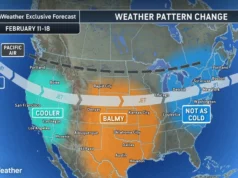
As the 2025 holiday shopping season unfolds, consumers are navigating a landscape marked by economic uncertainties and evolving shopping behaviors. According to PissedConsumer’s annual survey, shoppers are starting their holiday purchases earlier, with nearly half (46.7%) beginning between August and October. This shift reflects a proactive approach to budgeting amid rising costs.
Inflation remains a significant concern, with 64.9% of respondents expressing worry over higher prices impacting their holiday spending. This marks a decrease from 74.1% in 2024, suggesting that while inflation continues to influence consumer behavior, its perceived impact may be lessening. Additionally, 63% of shoppers are apprehensive about tariffs affecting their budgets, particularly when purchasing imported goods online.
Budget constraints are evident, with 24.5% of survey participants indicating they do not plan to shop this holiday season. Among those who do intend to shop, 38% plan to spend between $100 and $499, up from 32.2% in 2024. Conversely, the proportion of consumers planning to spend over $1,000 has decreased from 30.3% last year to 25% in 2025.
Traditional shopping events like Black Friday are losing their appeal, with nearly 60% of respondents deeming it irrelevant. This decline is attributed to the proliferation of extended sales periods and the convenience of online shopping. In fact, 65.3% of consumers plan to shop both online and in-store, while 22.21% prefer in-person shopping, and 12.6% will shop exclusively online.
Despite the rise of digital shopping platforms, social shopping remains a niche activity, with only 8.8% of consumers expected to engage in it. Interestingly, seniors are more inclined to embrace social shopping compared to other age groups. Similarly, AI tools are anticipated to have minimal impact, with just 10.8% of shoppers planning to utilize them during the holiday season.
Retailers are advised to adapt to these changing dynamics by offering clear information on pricing, including any potential tariff-related costs, and by providing deals that resonate with consumers’ desire for value. Understanding these evolving consumer preferences will be crucial for businesses aiming to succeed in the 2025 holiday shopping season.
Sources:
AI generated
Disclaimer
The information contained in South Florida Reporter is for general information purposes only.
The South Florida Reporter assumes no responsibility for errors or omissions in the contents of the Service.
In no event shall the South Florida Reporter be liable for any special, direct, indirect, consequential, or incidental damages or any damages whatsoever, whether in an action of contract, negligence or other tort, arising out of or in connection with the use of the Service or the contents of the Service.
The Company reserves the right to make additions, deletions, or modifications to the contents of the Service at any time without prior notice.
The Company does not warrant that the Service is free of viruses or other harmful components












